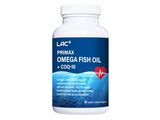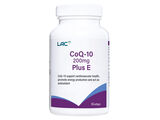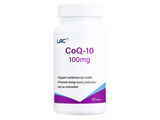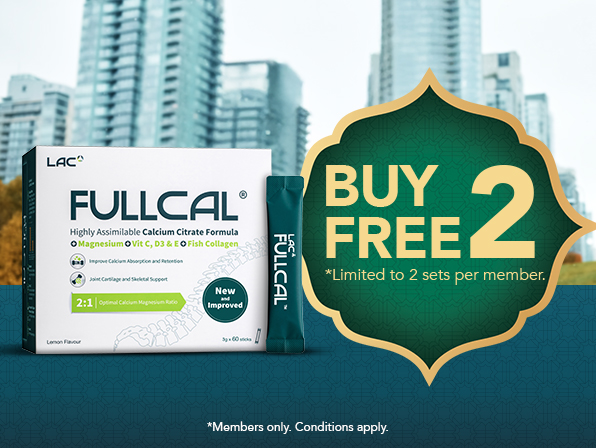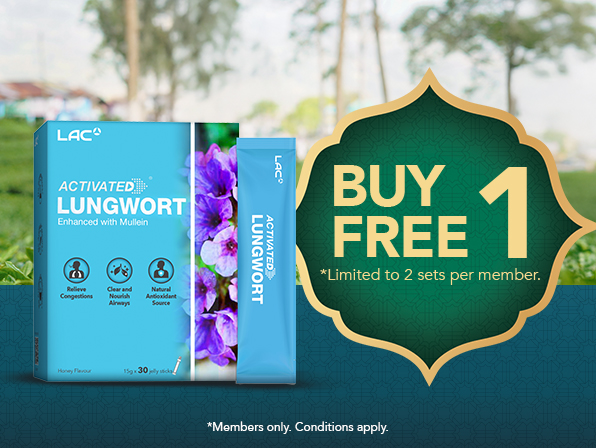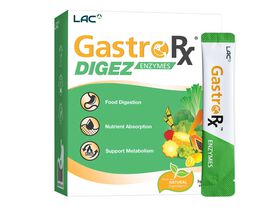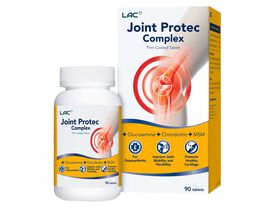A Comprehensive Guide to CoQ10
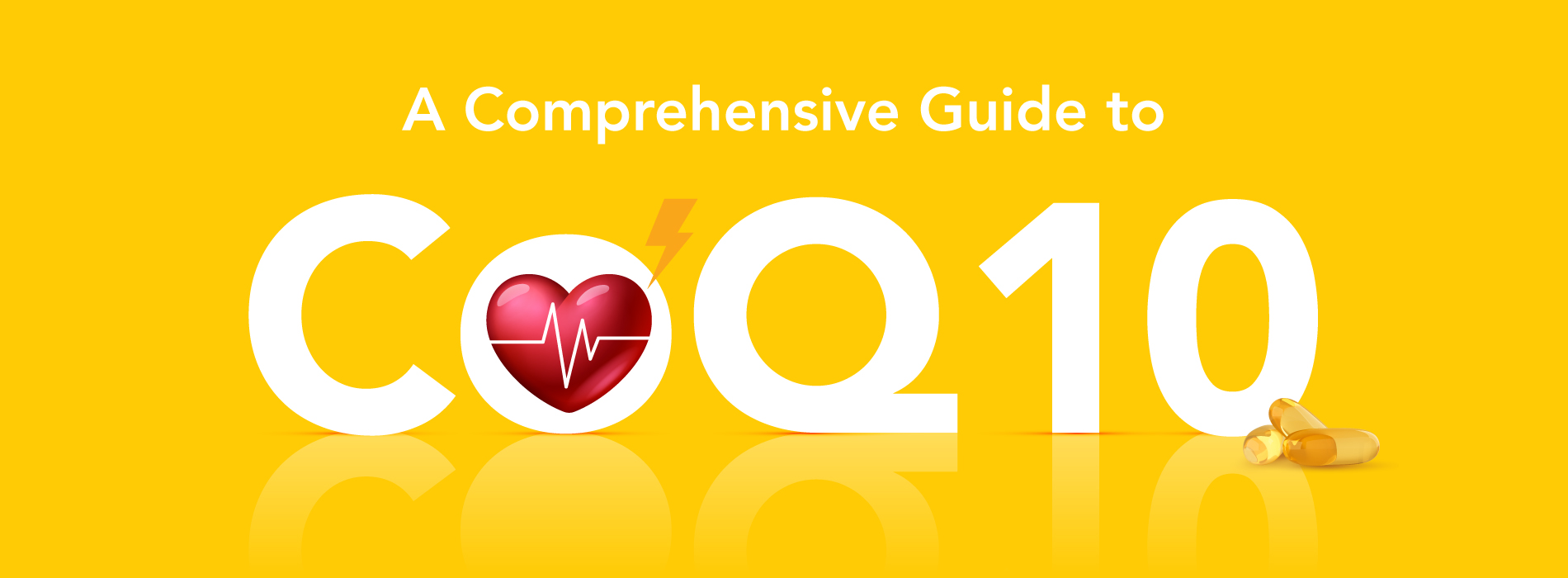
Discover the powerful impact of CoQ10 on cardiovascular wellness and why it could be the heart health supplement you've been missing.
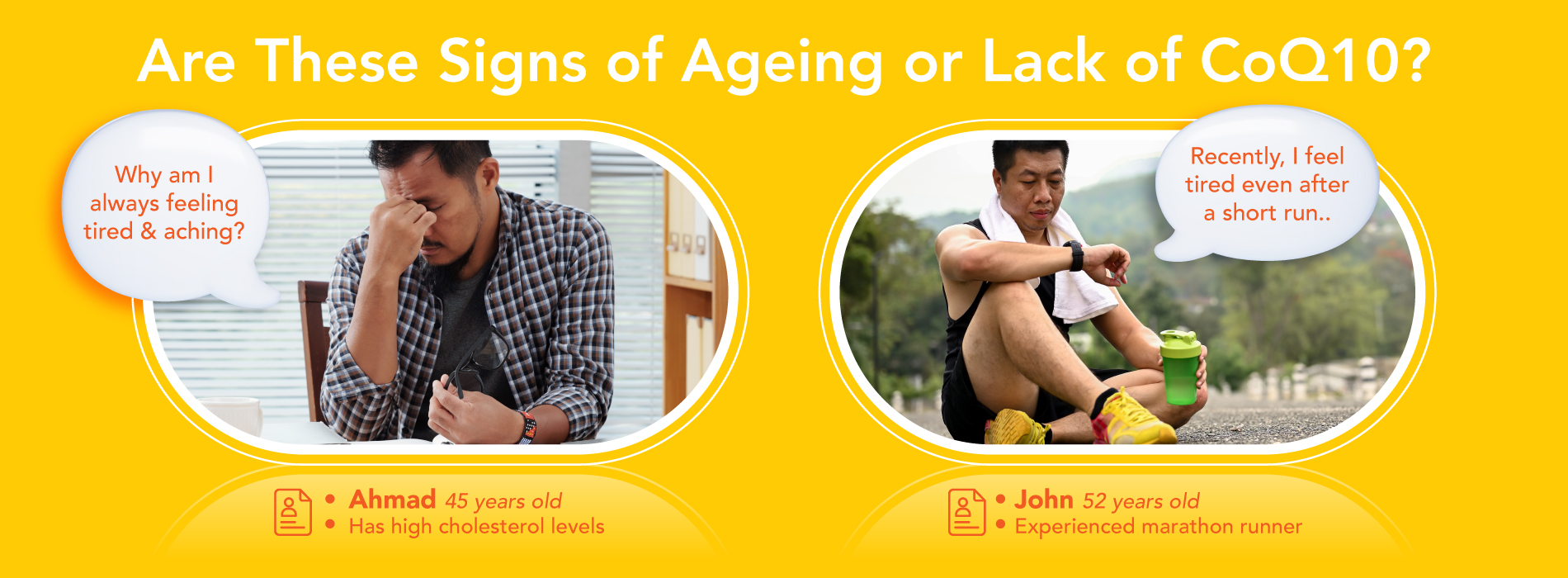
John, a 52-year-old marathon runner, prided himself on staying active and fit. But recently, he began feeling unusually tired, even during short runs. He blamed it on age but couldn’t shake the feeling that there was more to it.
After a visit to his doctor, he learned that his energy production and heart health might be slowing down due to declining CoQ10 levels— a common issue as we age.
On a similar note, take the case of Ahmad, a 45-year-old manager who had been controlling his cholesterol with statins for several years. Although his cholesterol was well-managed, he started experiencing something troubling: constant fatigue, muscle soreness, and an overall lack of energy.
Like John, Ahmad assumed it was just part of getting older or the stress of his demanding job.
He mentioned his symptoms to his doctor, who explained that although statins help lower cholesterol, they also reduce the body’s natural CoQ10 levels. This decrease can result in the exact issues Ahmad was facing.
Two different scenarios that share a common cause - reduced levels of CoQ10.
Lower CoQ10 levels—whether due to ageing, medication, or lifestyle—can significantly affect energy levels and heart health. Understanding what CoQ10 is and how it supports heart function is crucial for addressing these concerns effectively.
This article explores why CoQ10 is so important, its benefits, and how to incorporate it into your daily routine.
What is Coenzyme Q10 (CoQ10)?
Coenzyme Q10 is a natural compound found in every cell of your body. It helps produce the energy your cells need to function properly and is especially crucial for organs that require high amounts of energy, such as the heart.
Other than energy production, CoQ10 is an essential antioxidant that combats oxidative stress and free radical damage, both of which are linked to chronic diseases and ageing.
Why CoQ10 is Crucial for Heart Health
The heart, constantly pumping blood throughout your life, is one of the most energy-demanding organs in the body. Here’s how CoQ10 supports heart health[1]:
- Energy Production: The heart needs a lot of energy to keep beating, and CoQ10 helps produce this energy. A decline in CoQ10 level might lead to tiredness and reduced heart function.
- Antioxidant Defense: CoQ10’s antioxidant properties help neutralise harmful free radicals, protecting the heart from damage, especially for those at risk of cardiovascular conditions.
- Supports Healthy Cholesterol Levels: CoQ10 helps balance cholesterol by aiding the body’s natural processes.
- Blood Pressure Regulation: CoQ10 supplementation helps lower blood pressure by relaxing blood vessels and enhancing circulation.
- Improved Symptoms in Heart Disease: In individuals with heart failure or angina (chest pain), CoQ10 supplementation has been found to improve symptoms and enhance quality of life.
Other Health Benefits of CoQ10
In addition to supporting heart health, CoQ10 offers a range of other health benefits[2] such as:
- Better Energy and Reduced Tiredness: Help reduce chronic fatigue and increase overall energy, thanks to its role in energy production.
- Improved Skin Health: Research indicates that CoQ10 can help improve skin texture, reduce wrinkles, and increase skin elasticity.
- Support for Brain Health: CoQ10 may help improve cognitive function and protect against neurodegenerative diseases like Alzheimer’s and Parkinson’s by reducing oxidative stress in brain cells.
Nutrition and Lifestyle Tips to Boost CoQ10 Levels Naturally
Having learned about CoQ10’s benefits, you might wonder how to ensure you have enough of it to support your well-being. Here’s how you can naturally boost CoQ10 levels:
- Consume CoQ10-Rich Foods: Foods like fatty fish (e.g., salmon, mackerel, and sardines), organ meats (e.g., liver and kidney), spinach, cauliflower, and legumes are natural sources of CoQ10.
- Exercise Regularly: Regular exercise and activities like brisk walking, cycling, and swimming improve CoQ10 levels and boost energy.
- Adopt a Heart-Healthy Diet: Eating plenty of fruits, vegetables, whole grains, and healthy fats (from nuts, seeds, and avocados) benefits your heart and overall health. The Mediterranean diet, which is known for its heart-friendly qualities, is a great example.
- Reduce Oxidative Stress: Smoking, excessive drinking, and a poor diet can lower CoQ10 levels. Quitting smoking, moderating alcohol, and eating well can help maintain CoQ10 levels.
How to Incorporate CoQ10 Supplements into Your Daily Routine
While food and healthy habits help, they might not give enough CoQ10, especially if you have certain health issues or take statins. In these cases, taking a CoQ10 supplement is helpful. Below is a guideline to do it effectively:
- Choose the Right Form: CoQ10 comes in two forms—ubiquinone and ubiquinol. Ubiquinone is the inactive form, while ubiquinol is the active form your body can use. Ubiquinol is usually recommended for those over 40 or with health issues as it is more easily absorbed.
- The Right Dosage: Generally, 100-200 mg daily is recommended for health maintenance, but your needs might differ based on medications or health conditions[3]. It’s best to consult your healthcare provider for the right dosage.
- When and How to Take CoQ10: Since CoQ10 is fat-soluble, it's best taken with meals that include healthy fats. For energy, take it in the morning; for heart health, split the dose between morning and evening.
Additional Tips for Maximizing CoQ10 Benefits
- Pair with Other Heart-Healthy Supplements: Combining CoQ10 with supplements like omega-3 fatty acids can provide synergistic benefits for heart health.
- Monitor Your Progress: Notice any changes like increased energy, less fatigue, or better heart health to see if CoQ10 is working for you.
- Talk to Your Doctor: If you have health conditions or take medications, talk to your doctor before starting any new supplement to ensure safety and proper dosage.
Conclusion
Coenzyme Q10 is a powerful compound with profound benefits, especially for heart health. Whether you’re looking to boost energy, protect your heart, or combat oxidative stress, CoQ10 plays a crucial role. By incorporating CoQ10-rich foods, maintaining a healthy lifestyle, and supplementing when necessary, you can ensure your body has the support it needs for optimal health.
Remember, the heart never stops working for you—so give it the support it needs with CoQ10!
[1] https://bjcardio.co.uk/2015/10/coenzyme-q10-and-cardiovascular-disease-an-overview/
[2] https://www.healthline.com/nutrition/coenzyme-q10#TOC_TITLE_HDR_8
[3] https://www.webmd.com/vitamins/ai/ingredientmono-938/coenzyme-q10
